“There is no such thing as a painless repentance. “
Professor Ronald Potter
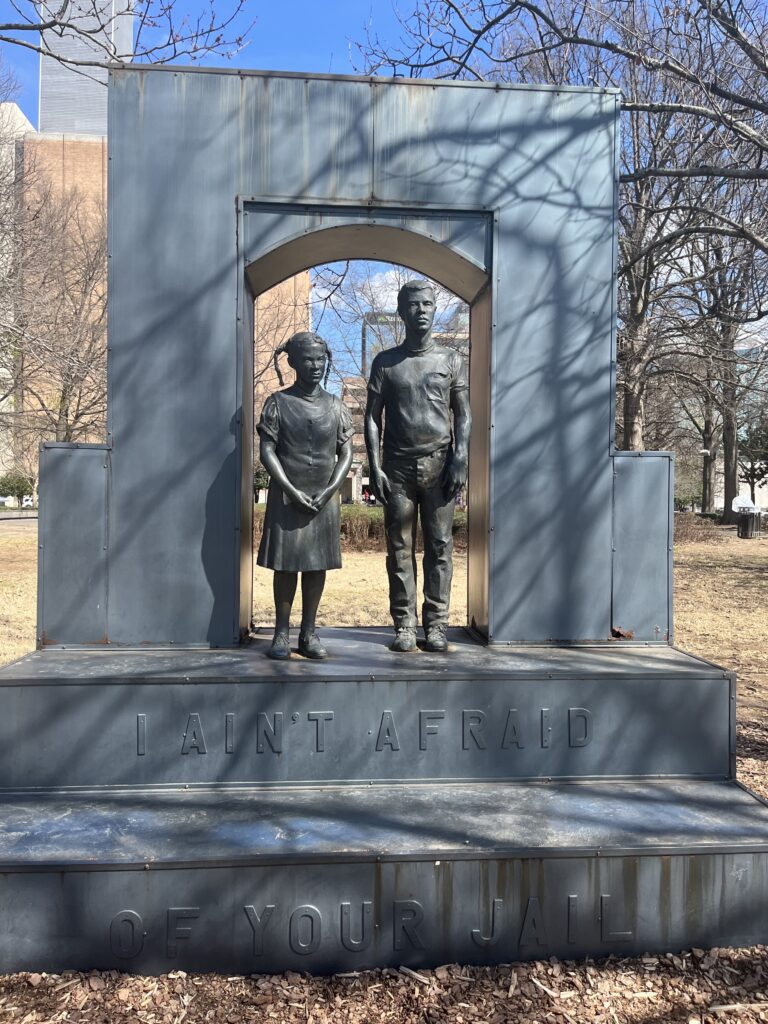
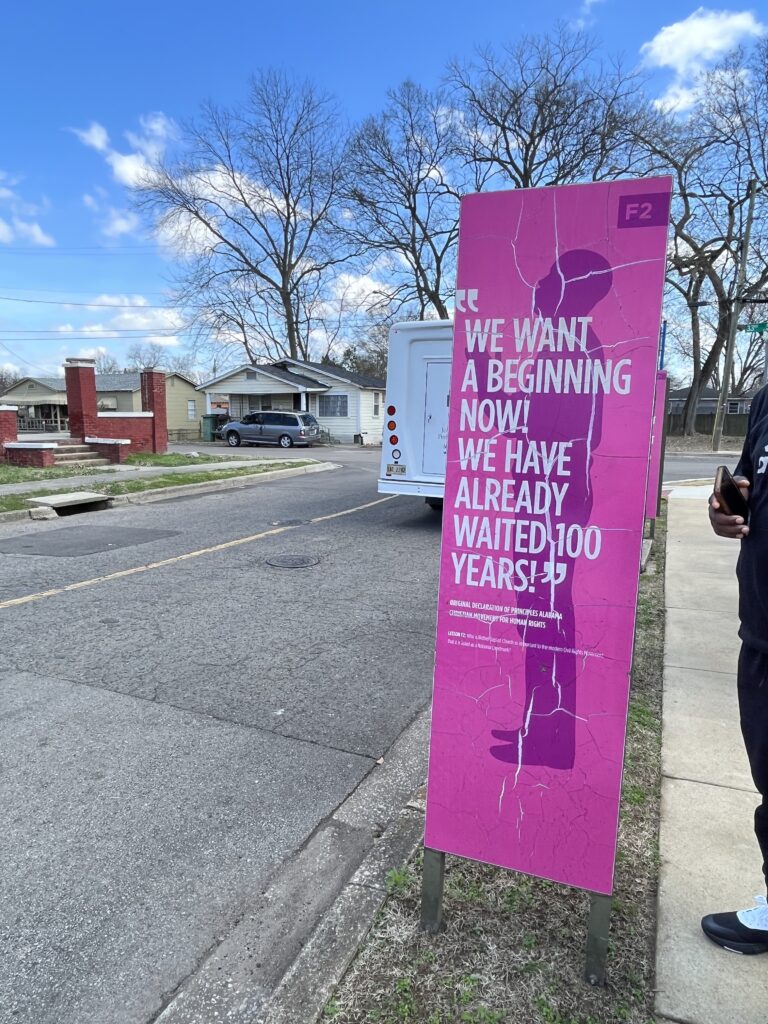
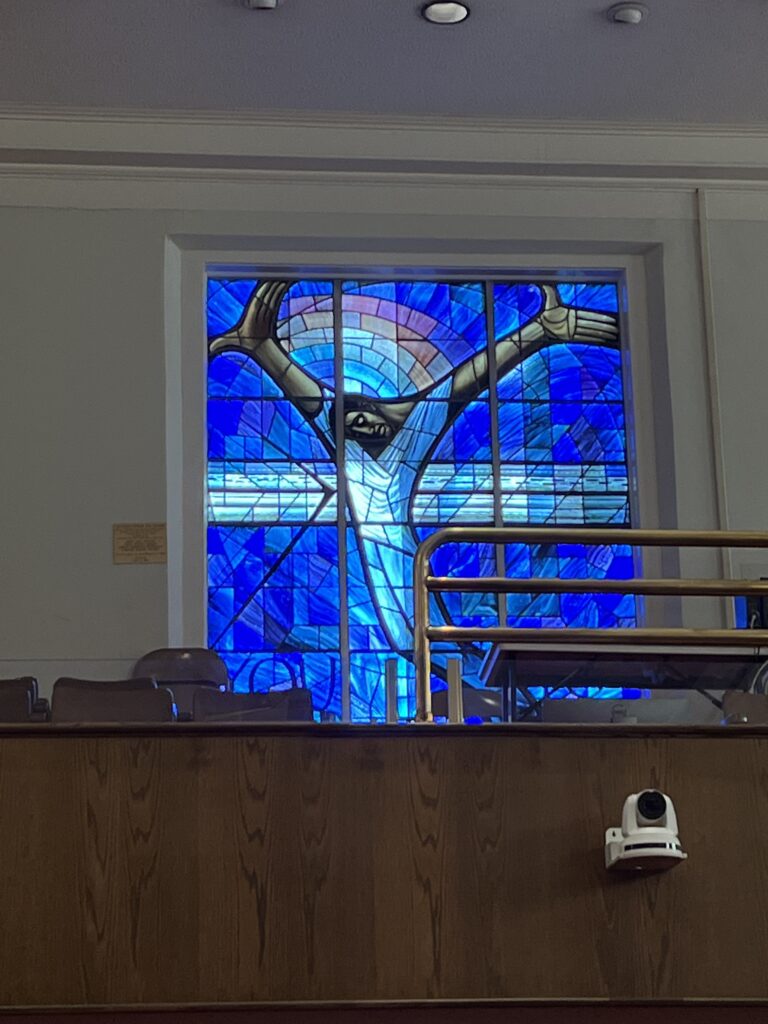
In February, I took a week long trip down to the South; Jackson, Mississippi specifically, to listen and learn and process with the John and Vera Mae Perkins Foundation, JVMPF. Today, JVMPF is run and operated by 3 of John Perkins children, who continue to carry the torch for their beloved activist father. If you are not familiar with who John Perkins is, he is long time civil rights activist and theologian, who for years has carried the torch of racial reconciliation and love go hand in hand. As he nears the end of his life at 93, his family runs trips for people like you and me to engage in a part of our nation’s history we would rather soon forget.
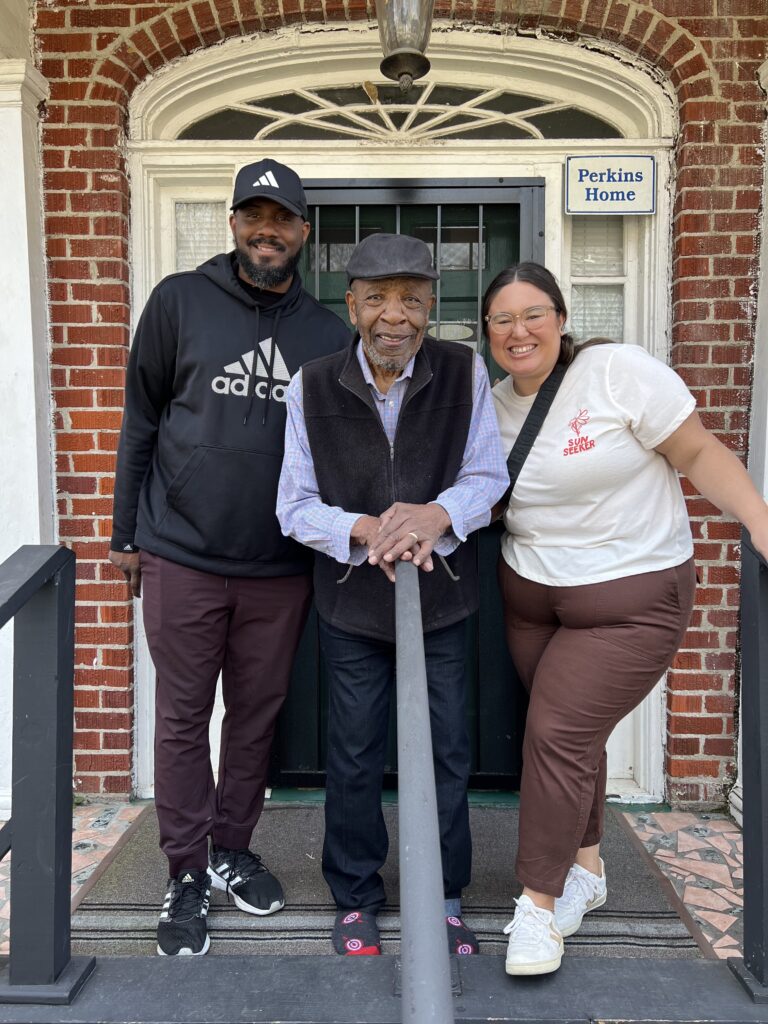
So the trip began! Anxiously I joined my team mates in the airport and we made our way. When we arrived in Jackson and after getting settled in, we met Professor Ron Potter and Elizabeth Perkins, our gracious facilitators and guides for the week. We began by having an amazing conversation to get us all on the same page when it came to terms and ideas that would be suggested and used the rest of the week, and went over our itinerary. We really focused in on the history of the sites we would be visiting:
- The Children’s Movement + Kelly Ingram Park
- The Freedom Riders
- 16th Street Baptist Church Bombing
- Selma and the crossings of the Edmund Pettit Bridge
- Leaders of the Movement: John Lewis, Medgar Evers, MLK Jr, etc.
And went over the definitions of terms like:
- Activism
- Bias
- Ethnicity
- Equality
- Equity
- Inclusion
- Justice
- Privilege
- Racism
We woke up in the morning to get a lesson in Biblical Justice from Phil and Marcia Reed, a white couple who for 40 years has chosen to go along the long and hard road of pastoring and place-based work in Jackson, Miss. the poorest city in America. They gave us a lecture on this: God demands justice, and we are the carries of it.
“The Church has lost its grit and fight for justice. Channel all that righteousness for justice and loving-kindness, dear church.”
Phil Reed
We then heard from Dr. Dolphus and Rosie Weary, who were the first two black students in their LA college to integrate it, and have spent the rest of their lives leading and loving the people of Jackson.
“Can God use poor people to build the foundation of His Church? I believe He can, He does, and it’s His favorite thing.”
Dolphus Weary
From there we got in the bus, and began to learn about the life and trials of John Perkins and his family. His memoir, Let Justice Rolls down, really illuminates his struggle as a black man in rural Mississippi, and the ways he was tortured, beaten, and wrongfully accused, to then turn around and dedicate his life to the work of bringing people together regardless of race, gender, or creed. We also heard first hand accounts from John’s children of integrating their schools before any other black families in their neighborhood.
We also learned about Medgar Evers, Civil Rights leader and activist local to Jackson, who was shot in his driveway after coming home from a rally. His death nationally exposed the deep racism in Jackson, and marked the city as a pillar of the Civil Rights Movement.
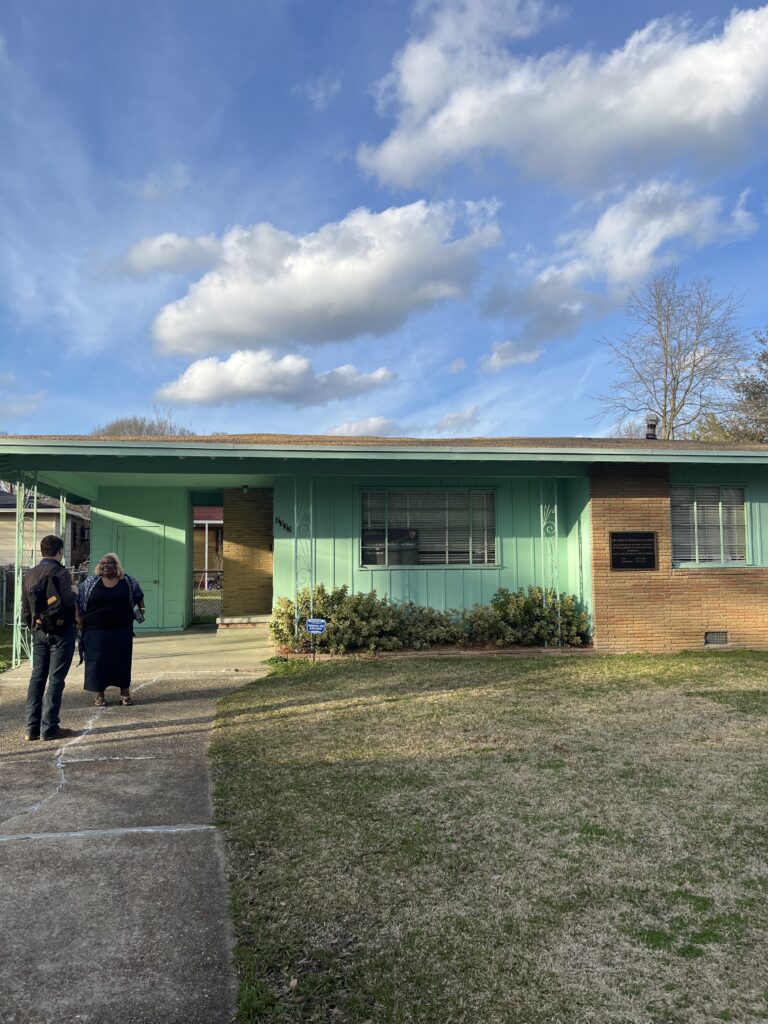
On Day 3, we woke up early and hit the road in the bus — making our way from Jackson, Mississippi to Birmingham, AL. On our drive, we watched a bit of the documentary Eyes on the Prize, and we received a lecture from Professor Ron Potter, who taught us about Biblical Pilgrimage, what it is and why it matters — and that we were currently on one! Taking a step of faith and out into the wilderness to hear from God and ask for eyes to see as He sees and ears to hear as he hears. He encouraged us to remember the Israelites as they left Egypt, and made their way to the Promise Land.
We make it to Birmingham! There, we really hear the history and beginnings of the Civil Rights Movement, with the Freedom Riders and the Children’s Movement. We walked Kelly Ingram Park, toured 16th Street Baptist Church where 4 little girls were senselessly killed in a bombing of the Black meeting place, and I was moved by how close everything was in Birmingham, and how deeply connected to the history the city still seems to be.
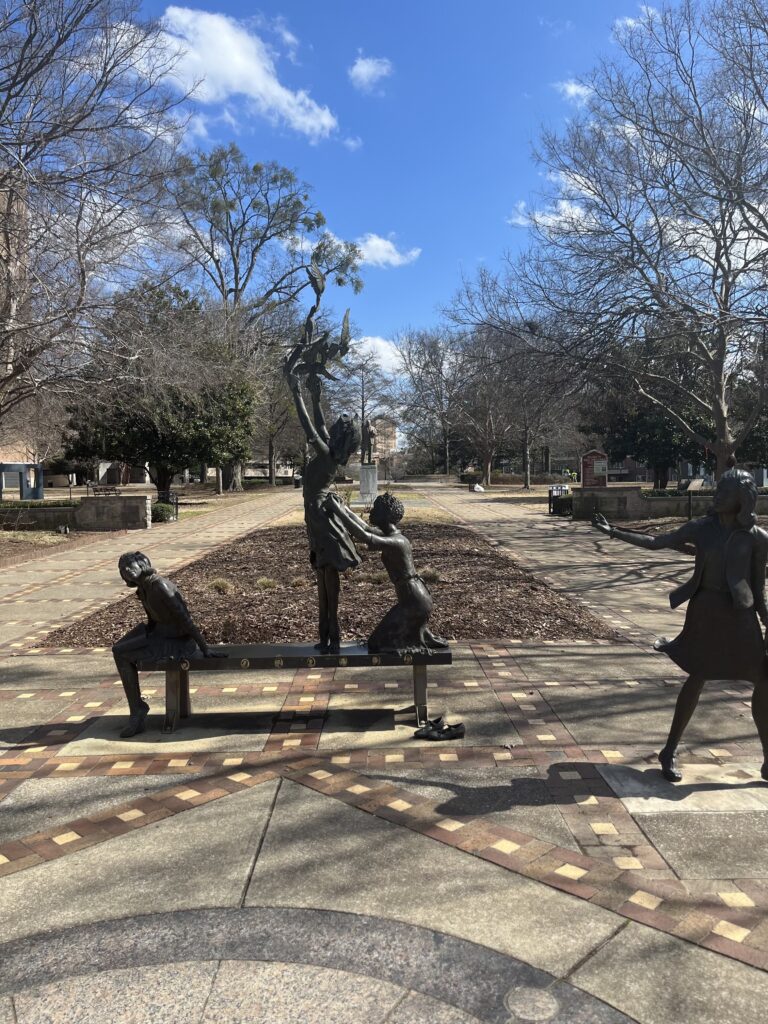
From Birmingham, we drove to Montgomery, Alabama. By the time we arrived, it was sunset, and we made our way to the waterfront to get a deep, gruesome, and up close and personal account of the beginnings of slavery in America, called the Middle Passage. We sat on the Riverfront in mostly silence, listening to the water, imagining hearing the voices lift over the water as Africans entered this country by no choice of their own. Quietly, we got up and walked through downtown Montgomery, passing old cotton warehouses, used to store and prep slaves for auction. We made our way to beautiful fountain in the middle of a square. With no signage, with no indication, we learned from our guide Elizabeth that this is where the slave auction was held for over 300 years in Montgomery. If it was not for the mural that BLM had painted on the sidewalk surrounding the fountain, no one would ever know.
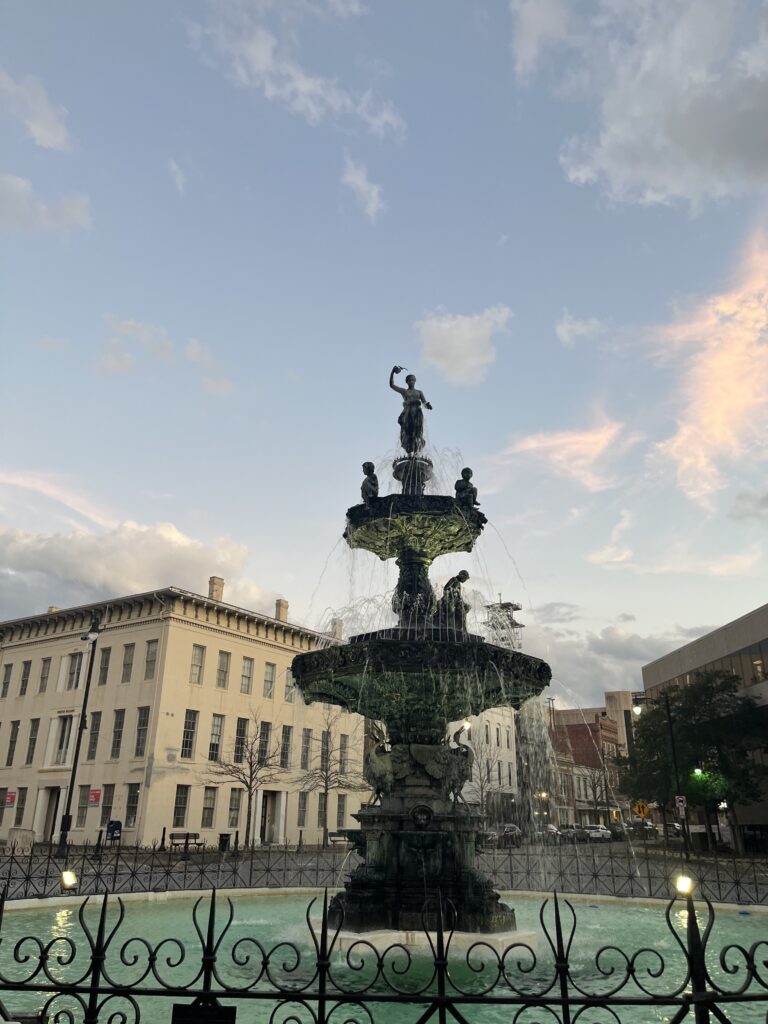
It’s Day 4, and the air is heavy. Today we visit the Equal Justice Initiative‘s Lynching Memorial and Museum. We start with the Lynching Memorial, which we have all been preparing mentally and emotionally that this would be our hardest day. Before we go there, though, we visit Dexter Avenue Church, the first church MLK Jr ever pastored at, and the parsonage home he lived in while he pastored.
Soon, we headed to the Lynching Memorial. It is sight; set upon a hill, the memorial is beautiful and terrible all at once. It is an experience that I will not soon forget, nor shake. I will never forget my new friend, staff member at JVMPF who was traveling with us, who had never been to the memorial, pass me as we walked through it, tears streaming down his face. He looked me dead in the eye, and said, ” I never thought I’d see the day when anyone would care.”
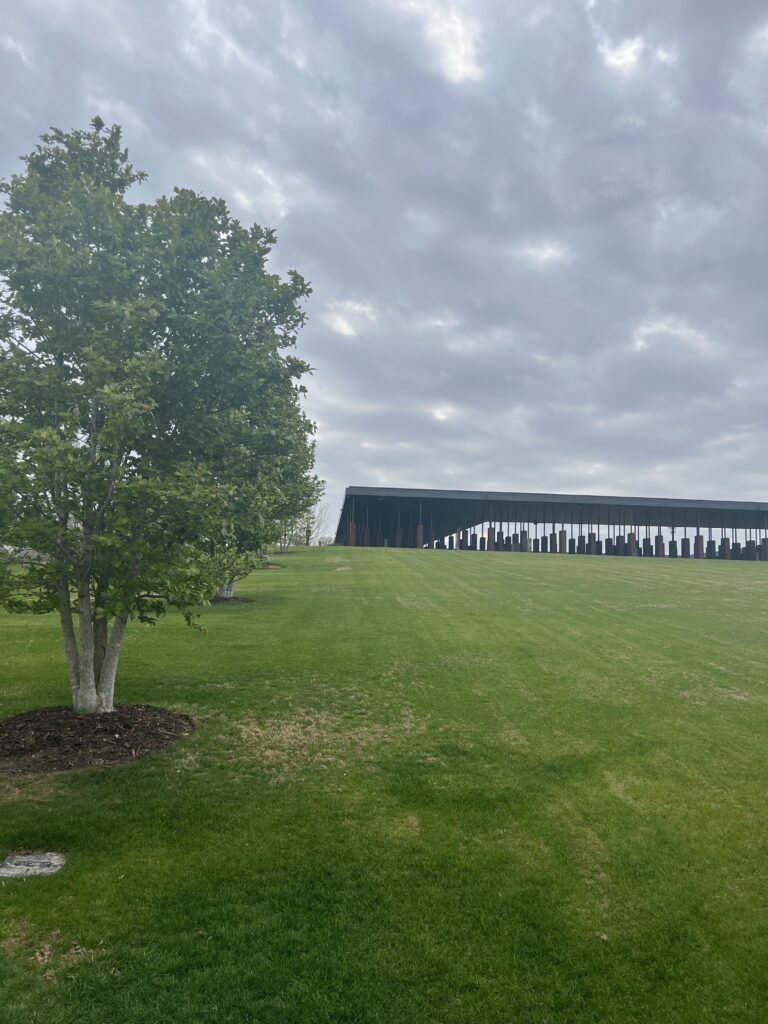
We then went to the Museum, done by the Equal Justice Initiative. We could have spent all day there, but with the 2 hours allotted, we were faced with lots of hard truths, deep injustices, and many uncomfortable facts that are still present today. We learned that racism is less blatant today, but it has shifted, morphed, and evolved to try to continuously suppress people groups that are worth more economically than as actual humans.
After a very much needed meal of comfort food, we made our way to Selma, Alabama, to walk the Edmund Pettus Bridge, site of the non violent marches, and police brutality that took place that raised awareness of voting rights suppression. As we walked, I thought of the families that can recall their family members who had been beaten as they took a stand for their rights as American citizens. I thought of John Lewis, who refused to have the bridge renamed after him, so that people would remember what happened there. The bridge is currently named after KKK leader, Edmund Pettus.
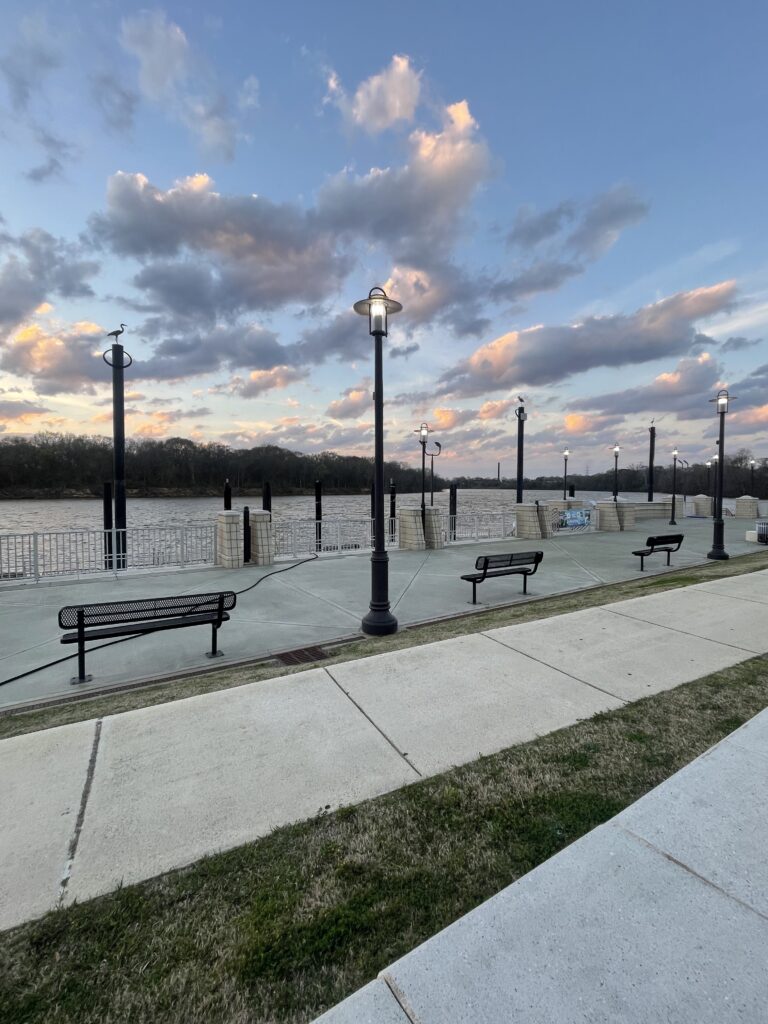
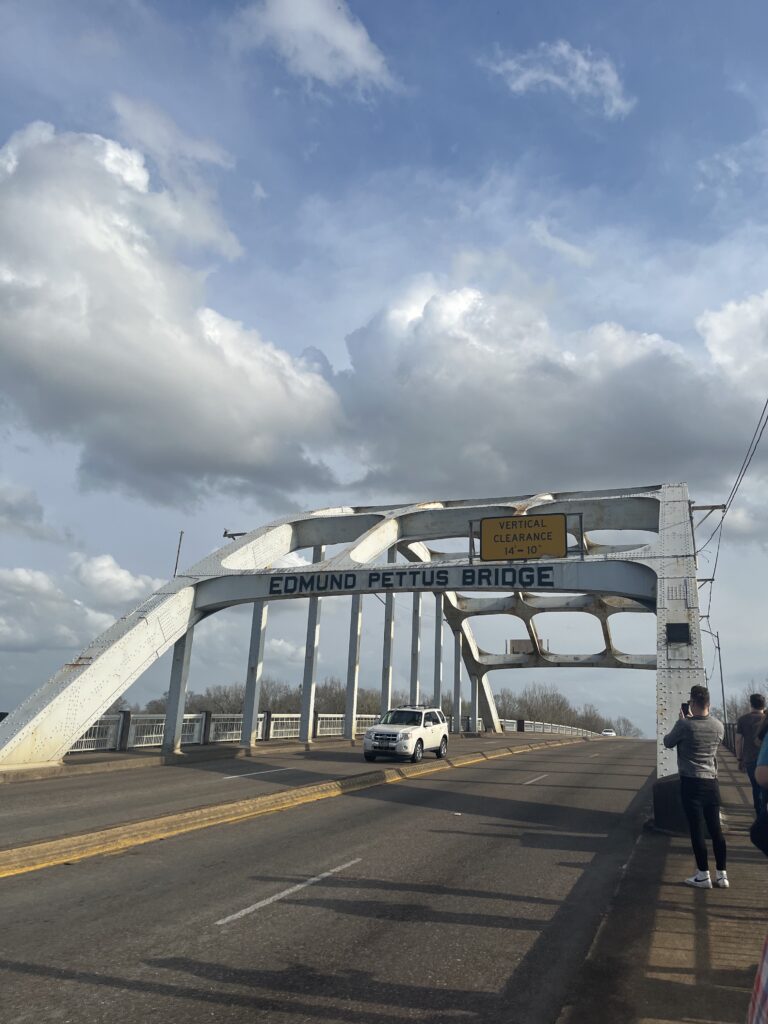
As our trip came to a close on Day 5, we were blessed to get some sweet personal time with John Perkins, and the women of the group were able to meet and thank his bride, Vera Mae. To meet such legends in the civil rights movement was a honor. John shared with us his parting thoughts, as his own personal ministry comes to a close, and his family picks up the baton. Even as he readies himself for the end of his life, he is willing and honest to discuss his struggles and strongholds. He left us with the greatest work we will ever do is believe that the power of love is strong enough to restore and reconcile.
Overall, this trip allowed me to take a critical and in depth look at my own biases and viewpoints. That as I move through the world, am I choosing to be a peacemaker who moves in towards justice? God is clear: He demands justice for His people, and we are his plan A, B, and C to bring His people back to Himself. How I can engage that now here in Fresno requires that I analyze how I spend my time, money, and energies. I am so grateful for the opportunity. I am a firm believer each American would benefit by coming face to face with the realities of our history, the past we are embarrassed of, and the ways white supremacy continues to infiltrate and oppress people today.
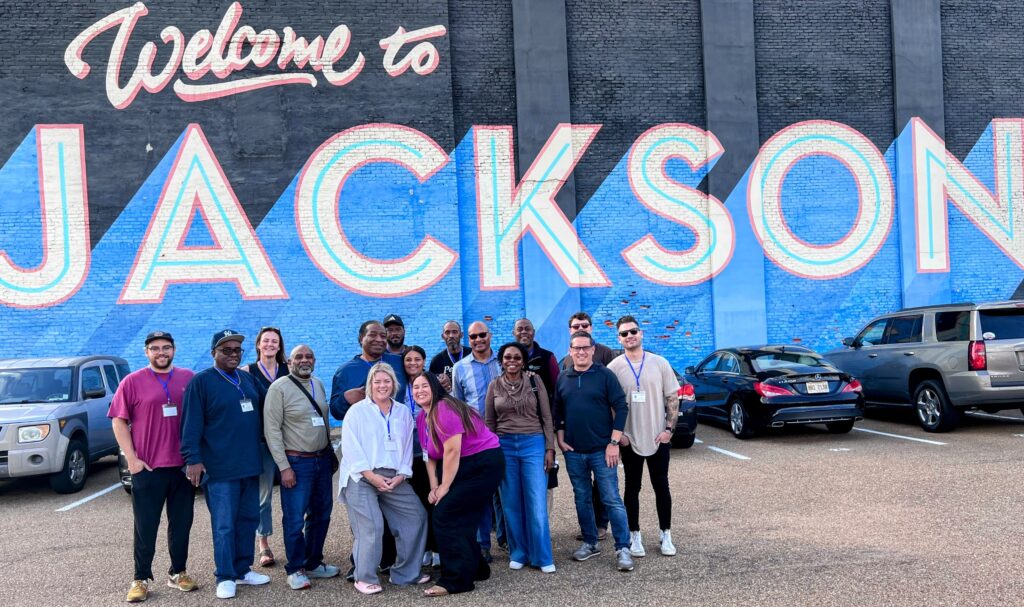

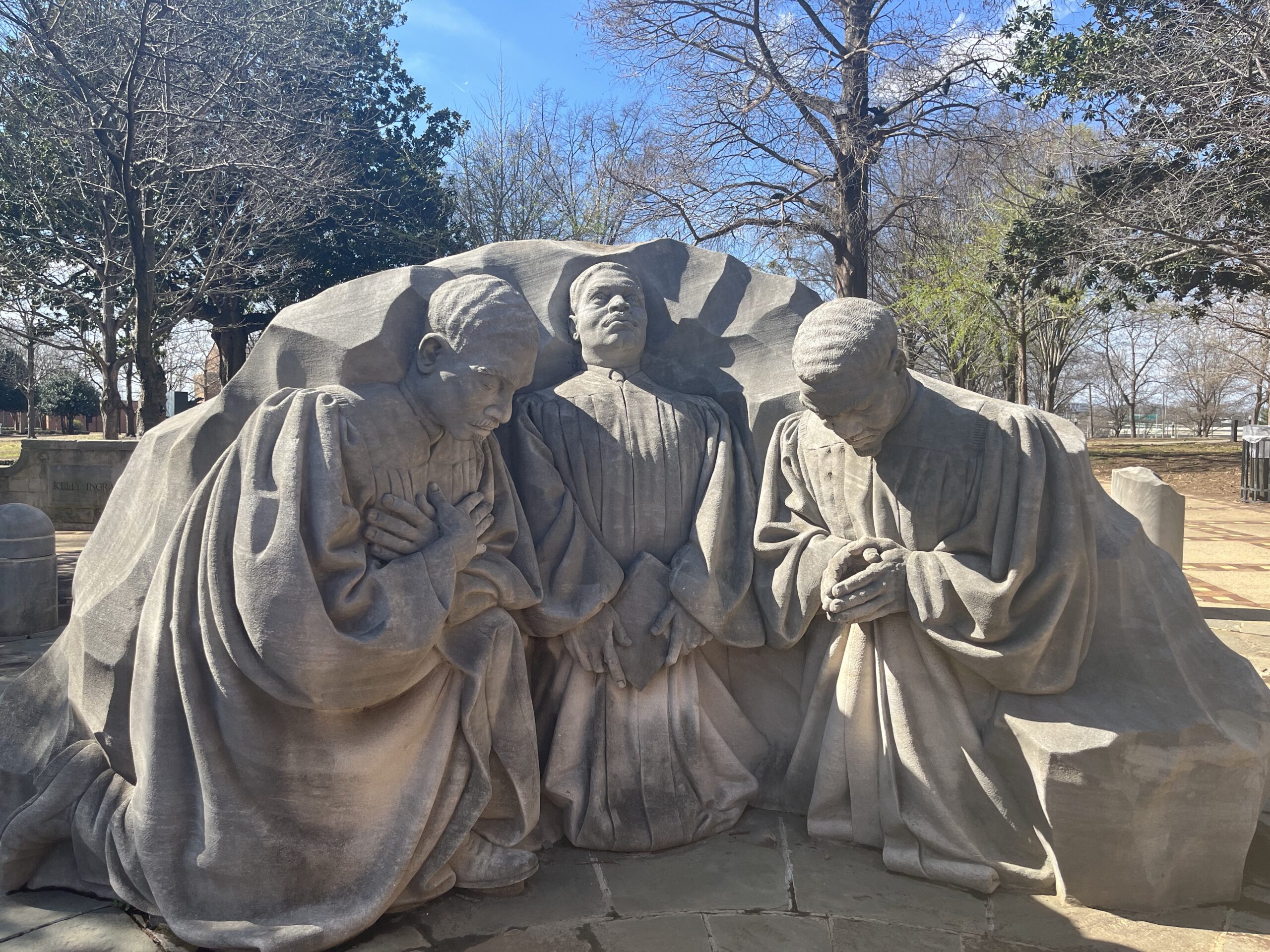
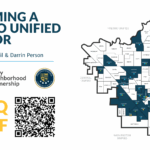




1 comment
Join the conversationSusan George - March 18, 2023
Dear Grace,
Your account of the trip south brought me to tears, thank you! I have been to Montgomery and thought it difficult to be confronted with our terrible past, but have not been to the other sites you visited, but now realize I need to visit those places as well. Thank you for your heartfelt blog of your time in the south.
xoxo